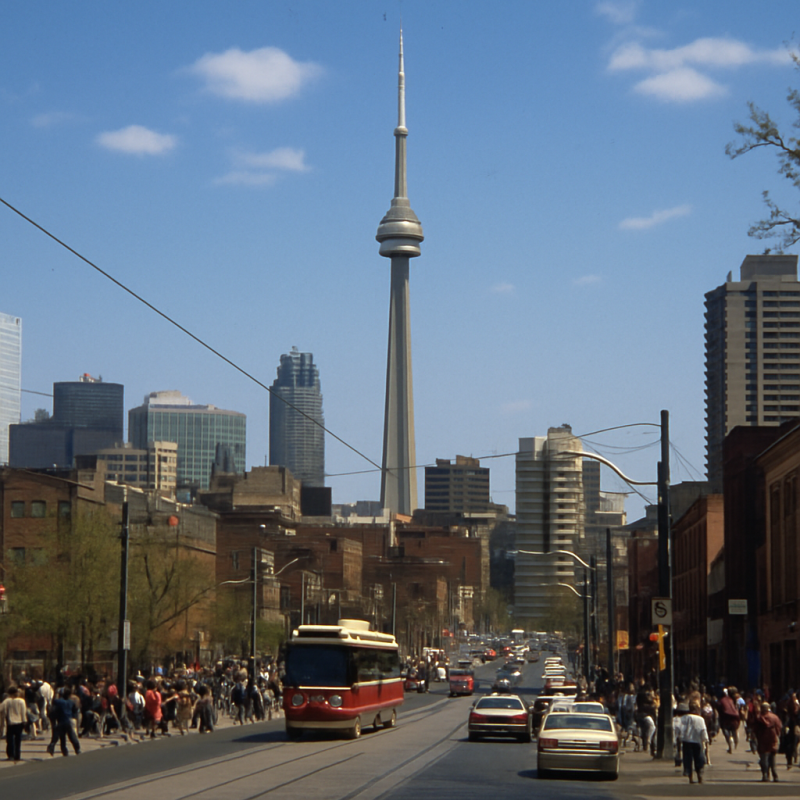Canada is a land of vast landscapes and rich cultural diversity. For newcomers, adapting to life in Canada can be both exciting and challenging. The country’s multicultural fabric offers a unique social experience.
Understanding Canada’s cultural diversity is key to successful integration. People from all over the world call Canada home. This diversity is reflected in the country’s social life and cultural practices.
Language plays a crucial role in communication and social integration. English and French are the official languages, but many others are spoken. Building language skills can enhance social interactions.
Social norms and etiquette in Canada may differ from what newcomers are used to. Canadians are known for their politeness and respect for personal space. Understanding these norms can ease social interactions.
Building a social network is important for settling in. Making friends and connections can help newcomers feel more at home. Community events and volunteering are great ways to meet people.
Family life in Canada is diverse and reflects the country’s multicultural nature. Understanding family dynamics can aid in social adaptation. Canadian families often engage in community activities and celebrations.
Celebrating diversity is a significant part of Canadian life. Festivals, food, and traditions from various cultures are celebrated throughout the year. These events offer a glimpse into Canada’s multicultural society.
Navigating challenges like loneliness and isolation is part of the immigrant experience. Mental health resources are available to support newcomers. Building a support network can help overcome these challenges.
Work and education play vital roles in social integration. They provide opportunities for personal and professional growth. Engaging in these areas can enhance social life in Canada.
Outdoor life and recreation are integral to Canadian culture. The country’s natural beauty offers numerous recreational activities. Embracing outdoor life can enrich the Canadian experience.
Understanding Indigenous cultures is important for social awareness. Indigenous peoples have a significant cultural impact in Canada. Learning about their history and traditions can enhance cultural understanding.
Practical advice and resources are available to help newcomers settle in. The Canadian government offers various programs to support immigrants. These resources can ease the transition to life in Canada.
Understanding Canada’s Cultural Diversity
Canada is celebrated for its cultural mosaic, welcoming people from diverse backgrounds. This inclusivity creates a rich tapestry of traditions and customs. As a newcomer, embracing this diversity is essential.
The multicultural nature of Canada means you’ll encounter a variety of languages, foods, and festivals. This diversity enriches daily life and enhances social interactions. Being open to new experiences can lead to deeper connections.
Key Aspects of Canadian Cultural Diversity
- Languages: Besides English and French, languages like Mandarin, Punjabi, and Spanish are widely spoken.
- Cuisine: Enjoy global flavors with local favorites like poutine and butter tarts.
- Festivals: Events like Caribana and Diwali showcase cultural richness.
- Traditions: Each community brings unique traditions, adding to the cultural depth.
Understanding and respecting cultural differences is crucial. Canadians value inclusivity and equality, promoting a harmonious society. Acknowledging and appreciating these differences can foster mutual respect and understanding.
Canada’s multicultural policy encourages maintaining cultural heritage while integrating into society. Immigrants are not pressured to abandon their roots. Instead, they are encouraged to share them with others.
Embracing cultural diversity involves active participation in community events and activities. Joining a local club or society can provide insights into different cultures. These experiences broaden perspectives and build lasting friendships.
Canada’s cities, such as Toronto and Vancouver, exemplify cultural diversity. They offer vibrant arts scenes, diverse eateries, and multicultural festivals. Exploring these cities can offer a taste of Canada’s multifaceted identity.
Learning about Indigenous cultures is a vital part of understanding Canada’s cultural landscape. Indigenous peoples have significantly contributed to Canadian culture and history. Their traditions and stories enrich the country’s cultural fabric.
By engaging with Canada’s cultural diversity, newcomers can build meaningful relationships. These connections are instrumental in feeling at home in a new country. Embracing diversity allows for personal growth and a deeper appreciation of Canada’s unique social life.
First Impressions: What to Expect When You Arrive
Stepping off the plane, a mosaic of cultures greets you. Canada’s cities are bustling, diverse, and welcoming. Each province offers a unique slice of Canadian life.
Expect friendly faces and polite interactions as part of daily life. Canadians cherish their reputation for politeness and welcoming newcomers. This creates a warm atmosphere for those settling in.
Navigating a new environment can be challenging. Understanding local customs and norms helps ease the transition. Knowledge about the climate and public transport systems is crucial.
Key Things to Know Upon Arrival
- Weather: Be prepared for varied climates, from icy winters to warm summers.
- Transportation: Learn about public transit options in your city.
- Accommodation: Housing styles vary, from urban apartments to suburban homes.
- Services: Discover local amenities, healthcare facilities, and community centers.
Settling into a new culture means embracing change and uncertainty. Initial interactions might feel different due to cultural nuances. However, openness fosters understanding and builds connections.
The pace of life may vary from your home country. Canadian cities like Toronto may feel fast-paced, while smaller towns offer more tranquility. Adaptation requires patience and an open mind.
Encountering new customs and etiquettes can seem daunting. Yet, they soon become familiar as you engage with the community. This engagement provides a sense of belonging and supports the adaptation process.
Expect your first few months to be a blend of excitement and discovery. Each experience offers learning opportunities, helping to shape your new life. As you acclimate, Canada’s diverse social landscape begins to feel like home.
Language and Communication in Canadian Society
Language plays a pivotal role in integrating into Canadian culture. Canada recognizes both English and French as its official languages. This bilingual nature reflects its rich cultural fabric.
In most provinces, English is predominantly spoken. However, provinces like Quebec primarily use French, offering a unique linguistic experience. Immersing yourself in both languages can enhance cultural interactions.
Effective communication goes beyond just language proficiency. It’s essential to understand local expressions and humor. Canadians appreciate humor that’s polite and often self-deprecating.
Enhancing Communication Skills
- Language Classes: Enroll in English or French language courses.
- Practice: Engage in conversations with locals whenever possible.
- Listen and Learn: Tune into local radio or TV programs.
- Patience: Give yourself time to adjust and learn.

A friendly demeanor aids in overcoming language barriers. Canadians are typically patient with learners and appreciate efforts to communicate. This kindness eases anxiety and facilitates better interactions.
Language isn’t just words; it’s also about active listening. Understanding cultural subtleties, like indirect communication styles, enhances conversations. This can build stronger connections over time.
Don’t hesitate to ask for clarification if something is unclear. Canadians are generally accommodating and willing to assist. Embrace these opportunities to learn and engage in more meaningful dialogue.
Overcoming initial language challenges takes time and persistence. However, with continual practice, confidence grows. Communicating effectively deepens your sense of belonging and facilitates cultural adaptation in this linguistically rich nation.
Social Norms and Etiquette in Canada
Understanding social norms is key to successfully adapting to life in Canada. Canadians are known for their politeness and respect towards others. Saying “please” and “thank you” is common and expected.
Punctuality is another important aspect of Canadian etiquette. Arriving on time for appointments or gatherings shows respect for others’ time. It’s a valued trait in both professional and social settings.
Personal space is significant in Canadian culture. Standing an arm’s length apart during conversations is typical. This respect for personal boundaries helps maintain comfort in social interactions.
Canadians also value queuing in an orderly manner. Whether at the bus stop or in a grocery store, waiting your turn is crucial. Jumping queues is generally frowned upon.
Key Social Norms to Remember
- Politeness: Use “please” and “thank you” often.
- Punctuality: Be on time for meetings and events.
- Personal Space: Maintain respectful distance during interactions.
- Queuing: Wait your turn in lines.

Canada’s multicultural fabric means you’re likely to encounter diverse practices. It’s important to approach these differences with openness and curiosity. Doing so fosters mutual respect and understanding.
Understanding unwritten social rules helps avoid faux pas. For example, tipping in restaurants is customary, typically around 15-20%. Failing to tip can unintentionally offend service staff.
Adaptation involves learning and practicing these local norms. Over time, they become second nature, enhancing social engagements. You’ll find that embracing these small gestures greatly enriches your Canadian experience.
Seeking feedback from locals or peers can also be enlightening. People tend to appreciate the effort made by newcomers to understand the culture. Cultivating this understanding builds strong, respectful relationships.
Building Your Social Network: Making Friends and Connections
Forming a social network is vital for integration into Canadian life. Connections provide support and enrich your experience. Many newcomers find making friends helps them feel at home.
Initially, joining groups or clubs can facilitate meeting people. Consider exploring interests, such as sports or arts. These activities often bring people together in relaxed settings.
Volunteering is a fantastic way to connect with others. Community service brings diverse individuals together. You contribute to society while building meaningful relationships.
Networking events offer another platform to meet people. These events are usually organized by professional organizations. They provide opportunities to discuss career interests and personal hobbies.
Ways to Build Your Network
- Join local clubs or groups
- Sports teams, hobby groups
- Special interest communities
- Volunteer in community services
- Local charities
- Events and festivals

Reach out to colleagues at work to broaden your network. Lunch or after-work social gatherings can lead to friendships. They are also occasions to learn more about local culture.
Online platforms can aid connection efforts. Sites like Meetup or Facebook groups cater to diverse interests. These platforms help find local events or virtual gatherings.
Building connections takes time and patience. Openness to new experiences is key. Approach new encounters with a friendly, curious mindset.
Keep in mind, reciprocal friendships enrich social life. Sharing experiences and learning from others deepen these bonds. Over time, these relationships form the foundation of your Canadian social life.
Community Life: Clubs, Volunteering, and Local Events
Community involvement is a cornerstone of Canadian social life. Engaging with local clubs and activities helps in building a sense of belonging. Each community in Canada offers unique opportunities to participate and connect.
Local clubs cater to varied interests, from sports to arts and crafts. Joining a club allows you to meet people with similar hobbies. It’s an excellent way to spend leisure time productively and socially.
Volunteering is highly valued in Canada. Opportunities abound in charities, non-profits, and community projects. Volunteering not only enriches your social circle but also enhances your skills and experience.
Volunteering Opportunities
- Community Centers: Provide programs and events
- Libraries and Schools: Offer educational support
- Environmental Groups: Engage in conservation efforts

Local events, such as festivals and fairs, celebrate Canada’s cultural diversity. These events are great for experiencing local traditions and cuisine. Whether it’s a food festival or a cultural parade, participation leads to memorable experiences.
Attending these events helps newcomers learn about different cultures. You’ll encounter diverse communities and unique traditions. This enriches your understanding of life in Canada.
Participation in community life fosters a sense of inclusion and integration. Engaging in these activities facilitates smoother cultural adaptation. Moreover, they provide an enriching experience of the vibrant Canadian social fabric.
Family and Home Life in Canada
Family life in Canada emphasizes quality time and balance. Canadians value close family connections and often prioritize family gatherings. This creates a nurturing environment for both children and adults.
Homes in Canada vary widely, from city apartments to rural houses. The choice of living space often depends on lifestyle preferences and economic considerations. Urban areas typically offer apartments, while suburban regions provide more spacious housing.
Common Features of Canadian Homes
- Central heating for harsh winters
- Open-plan kitchens and living areas
- Backyards in suburban homes

Education and recreation play vital roles in family life. Canadian families often engage in community activities and school events. These activities encourage a sense of belonging and foster social skills.
Work-life balance is highly regarded in Canadian society. Parents strive to spend quality time with children despite busy schedules. This balance is supported by policies such as parental leave and flexible work arrangements.
Religious and cultural diversity is respected within Canadian homes. Families are encouraged to maintain their cultural traditions. This multicultural ethos enriches family life and promotes mutual respect and understanding.
Celebrating Diversity: Festivals, Food, and Traditions
Canada’s multicultural tapestry is beautifully showcased through its festivals, food, and traditions. Across the nation, communities celebrate a diverse array of cultural events, reflecting the country’s rich heritage. These celebrations offer both residents and newcomers a chance to experience a global variety of cultures.
In major cities like Toronto and Vancouver, events such as the Caribana festival and Diwali Utsav draw large crowds. These events highlight the vibrancy and diversity of Canadian society. Attending these festivals offers a window into different cultural traditions and practices.
Notable Canadian Festivals
- Toronto Caribbean Carnival (Caribana)
- Vancouver Pride Parade
- Winterlude in Ottawa
- Montreal Jazz Festival

Food plays a significant role in showcasing Canada’s cultural diversity. From poutine to butter chicken, the culinary scene reflects myriad influences. Restaurants and street food vendors offer a taste of every continent in bustling cities.
Canadians take pride in recognizing and respecting various cultural traditions. National holidays like Canada Day unite everyone, while cultural holidays like Chinese New Year add vibrant diversity. Engaging in these festivities broadens understanding and appreciation of the multicultural tapestry.
Participation in these events fosters community connection and shared joy. Experiencing different customs and cuisines enriches social life and personal growth. Living in Canada offers continual opportunities to explore and celebrate a world of cultures, right at your doorstep.
Navigating Challenges: Loneliness, Isolation, and Mental Health
Adjusting to life in Canada can bring about feelings of loneliness and isolation. These emotions are common among newcomers as they adapt to a new environment. Understanding these challenges is the first step to overcoming them.
Loneliness can stem from being far from family and familiar surroundings. It’s crucial to acknowledge these feelings and seek support. Many resources in Canada cater to mental health and can provide valuable assistance.
Building a support network is essential for emotional well-being. Friends, community groups, and local support services can offer comfort and guidance. Engaging in community activities can also ease feelings of isolation.
Strategies to Overcome Loneliness
- Join local clubs or groups
- Attend community events and workshops
- Seek counseling or therapy services

Mental health is an important aspect of settling in Canada. The Canadian healthcare system offers services to address various mental health needs. Accessing these services can provide necessary tools to manage stress and adaptation challenges.
Staying connected with loved ones back home can also help alleviate homesickness. Modern technology makes it easier to maintain these connections through video calls and social media. Keeping regular contact with family can provide emotional support.
It’s important to recognize when professional help is needed. The stigma around mental health is decreasing, and seeking help is encouraged. Understanding that these feelings are a normal part of the transition can also reduce their impact.
Adaptation takes time, and it’s okay to ask for help. By actively addressing loneliness and mental health challenges, newcomers can create a more positive and fulfilling life in Canada. Engaging with resources available can significantly enhance the journey toward feeling at home.
The Role of Work and Education in Social Integration
Work and education are vital components of social integration in Canada. They offer opportunities to engage with diverse communities and expand personal networks. Canadian workplaces often reflect the country’s cultural diversity.
Finding work is a key step in adapting to life in Canada. Employment provides financial stability and opportunities for professional growth. It also offers chances to interact with colleagues from varied backgrounds.
In the workplace, teamwork and collaboration are emphasized. Understanding these dynamics can enhance your social connections. Networking is also a crucial aspect of professional life in Canada.
Ways Work and Education Foster Social Integration
- Networking events and industry gatherings
- Collaborative projects and team-building activities
- Participation in professional development workshops

Education plays an equally important role in social integration. It provides a platform for immigrants to acquire new skills and knowledge. It also opens doors to social connections through classes and campus activities.
Canadian educational institutions celebrate diversity and encourage social engagement. By participating in study groups, events, and clubs, students can connect with peers. This involvement fosters a sense of belonging and community.
Whether through work or education, immigrants gain insights into Canadian culture. Exposure to different perspectives helps in understanding local customs and traditions. These experiences significantly aid in the overall adaptation process.
Outdoor Life and Recreation: Embracing Canada’s Nature
Outdoor life is an integral part of the Canadian experience. The vast landscapes offer endless opportunities for recreation. Immigrants quickly learn that nature is a big part of Canadian social life.
Canada is known for its beautiful national parks and scenic trails. Outdoor activities help newcomers bond with others and embrace the Canadian lifestyle. Participating in these activities encourages both physical well-being and social interaction.
Canadians enjoy numerous outdoor pursuits throughout the year. This engagement helps build communities and friendships. Seasonal changes offer varied recreational experiences, from summer hiking to winter skiing.
Popular Outdoor Activities
- Hiking in national parks
- Skiing and snowboarding
- Camping and fishing
- Ice skating on frozen lakes

Beyond recreation, nature offers a place for reflection and connection. Many find peace and inspiration in Canada’s wilderness. It’s common to see families and groups engaging in outdoor adventures.
Experiencing the natural beauty of Canada fosters a sense of belonging. It allows immigrants to connect deeply with their new home. Nature acts as a universal language, breaking down barriers and creating shared experiences.
Understanding Indigenous Cultures and Their Significance
Understanding Indigenous cultures is essential for grasping Canada’s social fabric. The rich heritage of Indigenous peoples adds depth to Canadian diversity. Their cultural contributions and histories are invaluable to Canadian society.
Engaging with Indigenous cultures fosters mutual respect and learning. From traditions to oral histories, these cultures offer profound insights. They remind us of the lands’ original stewards and their enduring legacy.
Ways to Engage with Indigenous Cultures
- Attend Indigenous festivals and events
- Visit cultural centers and museums
- Learn about Indigenous arts and crafts

Participating in Indigenous events can enhance newcomers’ cultural understanding. It’s a way to appreciate the rich narratives and traditions. This engagement can lead to meaningful social connections and learning experiences.
Incorporating this knowledge into social adaptation helps build a more inclusive society. Acknowledging and respecting Indigenous cultures enriches Canada’s cultural landscape. It’s an important step in settling into Canada with awareness and appreciation.
Tips for Settling In: Practical Advice for Newcomers
Relocating to a new country can be both thrilling and daunting. Preparing for the transition makes the process smoother. Here’s some practical advice to help you settle in Canada seamlessly.
First, familiarize yourself with the local community and amenities. Know where essential services are like groceries, healthcare, and schools. These are crucial for daily living and social interactions.
Building a social network is essential for emotional wellbeing. Reach out to neighbors and local groups. They can offer support and companionship, easing feelings of isolation.
Essentials for Newcomers
- Obtain a local SIM card for communication
- Open a Canadian bank account
- Register for a social insurance number

Consider taking part in language courses if needed. Proficiency in English or French aids in communication and social integration. Many communities offer free or low-cost options.
Financial management is vital in a new country. Understand local taxes and cost of living. This knowledge helps you budget effectively and avoid unnecessary stress.
Community Engagement Tips
- Join local clubs or hobby groups
- Participate in community events or classes
Engagement with the community speeds up the settling process. It helps establish a sense of belonging and enriches your life in Canada. These activities are practical yet fulfilling for newcomers seeking a smooth transition into their new Canadian life.
Resources and Support for Immigrants
Canada offers numerous resources to aid immigrants in their transition. Understanding these options can greatly ease your settling journey. The government and various organizations provide tailored programs for newcomers.
Settlement agencies across the country offer crucial assistance. These agencies help with language training, employment, and cultural integration. They serve as a bridge to your new life in Canada.
Key Resources for Newcomers
- Access to language classes
- Employment and career services
- Legal and financial advice

Online platforms provide invaluable support for immigrants. Websites often include directories of local services, forums, and informational guides. Engaging with these resources helps answer common questions and concerns.
Connecting with established immigrant communities in your area can also be beneficial. These networks often provide practical advice and emotional support. Establishing a support network can be a significant comfort during your adaptation phase. By taking advantage of these resources, immigrants can find their footing in Canada, embracing their new life with confidence.
Conclusion: Embracing Your New Social Life in Canada
Canada’s multiculturalism is a vibrant tapestry you can weave into. Embracing this diversity enhances your social experience. You’re not just adapting; you’re contributing to a dynamic cultural landscape.
Building a social life in Canada involves understanding and respect. By learning local customs and engaging with communities, you’ll create meaningful connections. These interactions form the foundation of your new life.
Remember that challenges are part of the journey. Feelings of loneliness and isolation may occur, but support is available. Reach out, engage in activities, and allow yourself to grow into your new environment.
Ultimately, embracing your new social life enriches not just yours but also the lives of those you meet. Welcome the changes, celebrate the differences, and let Canada’s open arms guide you into an enriching experience.









